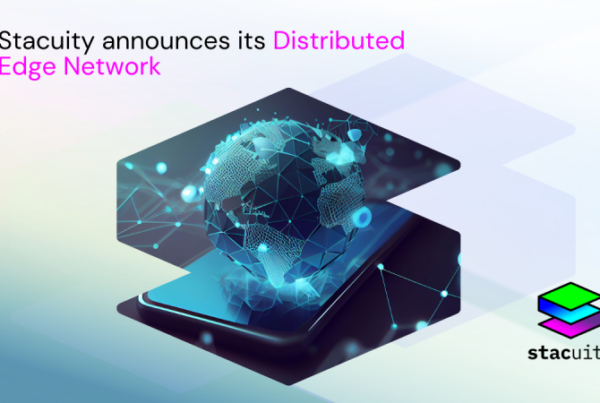In our 5 minutes with profiles, MEF members talk about their business, their aspirations for the future and the wider mobile industry. This week, Sarah Keller, International Business Development Director introduces Global Message Services.
What does GMS do?

Global Message Services is a global messaging provider that offers managed services solutions for mobile operators in A2P, P2P, and P2A messaging, as well as multichannel messaging solutions for enterprises. We really focus on operator network protection, providing full, holistic audits of network traffic and commercial relationships. We look for revenue leaks and optimization issues that can prevent MNOs from benefiting from the value they help create in the market. Then, as a firewall and messaging provider, GMS provides legal routes for enterprise and OTT traffic termination, ensuring mobile network transparency whilst securing and growing revenue.
This trusted position among operators in turn means that we have a lot of high-quality connections across the globe, which we offer to enterprises to create mutually-beneficial opportunities for all parties. GMS offers multi-channel messaging solutions via its Hyber platform, which enables enterprises to contact clients through three primary channels: Push notifications, OTTs, and SMS. We also offer a suite of other mobile- and internet-oriented services so enterprises can take full advantage of the medium.
When did you launch and what growth have you seen?
GMS started in 2006 providing SMS services, and quickly expanded to cover a host of mobile messaging services, including MMS, OTT messaging for enterprises, and network security for operators. We are headquartered in Switzerland but have a presence in Europe, the Middle East, Asia, Latin America and Africa. Today we have a large office in Kyiv, Ukraine, and regional offices and infrastructure centers across the world – including Pakistan, Dubai, Russia and Brazil – providing both local knowledge and technical redundancy. Currently, GMS’ network incorporates 400 enterprises and 900 operators, with 240 of those operators connected directly.
What are your main goals?
GMS is very much about securing and building our partner’s business – whether it’s safeguarding an operator’s revenue or making sure enterprises get the most out of their messaging options. We are really interested in finding ways to grow and enhance the mobile ecosystem.
It’s not just about building value from what’s already there, or even future-proofing, but also using secure connectivity to build new opportunities and drive new business.
GMS, both operator and enterprise facing, typically concentrates on building lasting partnerships uniting the two business elements together, that’s why we often say our core values are integrity, quality, and commitment. When your business revolves around enhancing the transparency and control of an operator’s network, and simultaneously building value for everyone involved, you have to have those values which underpin trust.
Where do you see your company in three years’ time?
We are expanding in markets and with operators where messaging has, historically, held no key focus – regions including APAC, LATAM and MEA. In 3 years’ time we believe GMS shall be recognized as a core telecoms partner offering essential security and revenue assurance for the operator whilst creating business expansion opportunities for the market overall. At the same time GMS is establishing a presence in new and emerging technologies like RCS, 5G, and IoT. GMS is small enough to be flexible and adaptable to market changes whilst strong enough to help shape some of those changes
In 3 years’ time we believe GMS shall be recognized as a core telecoms partner offering essential security and revenue assurance for the operator whilst creating business expansion opportunities for the market overall. At the same time GMS is establishing a presence in new and emerging technologies like RCS, 5G, and IoT. “
What aspect of mobile is most exciting to you right now?
There are many service providers engaging with enterprises to deliver interesting and valuable propositions for delivery to the end-subscriber. Clearly the potential of RCS is a factor in the roll-out of some of these propositions but further developments in standard SMS/MMS technology are enabling the delivery of videos, photos, audio messages, long text, and the possibility of two-way engagement providing a great customer experience, offering an app-like experience without the need to download an app.
Meanwhile, within the operators themselves the benefits of machine-learning expertise are having a profound effect on the maximization of revenue streams. As message types grow in terms of both volume and complexity an advanced machine learning approach to reliably identify message types is essential. In this way individual traffic types can be fully categorized and, essentially, be subject to differential pricing allowing virtually all messages, regardless of variable perceived value, to be delivered to subscribers. The impact on operator revenues can be transformational and, increasingly, message monetization projects are recognizing the benefits yielded by employing new machine-learning technologies.
What’s the most critical issue that will hit mobile within the next 12 months?
The rollout of new technology will be really important in the near future. 5G is set to create some big opportunities – far beyond just increased speed – but there are some challenges. Even assuming a best-case-scenario regarding rollout, there are still unanswered questions such as international 5G roaming. We’re already starting to see some of these questions coming to the fore, for example in recent developments surrounding the German Bundesnetzagentur’s auction of 5G spectrum.
RCS is in a similar position. GMS is organizing its own RCS processes and infrastructure, so this is a topic close to our hearts. The trick here is building a critical mass in the industry to a point where it becomes commercially viable, and that requires getting a lot of parties properly aligned.
Apart from your own, which mobile companies are the ones to watch in the year ahead?
Probably the RCS leaders, like Google (thanks to Jibe) and Vodafone, who are helping to drive the development of both technical standards and use-case scenarios. What they manage to accomplish with the format will inform efforts elsewhere – if they make good progress then that might even encourage other players to accelerate their efforts.
At the very least, some of the campaigns these leaders have already run (for example, Vodafone’s efforts in Spain, Italy, and the UK) will prove valuable learning opportunities not just for the network and enterprises involved, but to everyone involved in RCS. So obviously GMS is interested in seeing how these experiments pan out.
Want to be featured on the MEF Minute?
The MEF Minute is an award winning blog that provides a cross-ecosystem and international perspectives on all things mobile. With contributions from MEF’s members and other industry experts it is a dedicated global news resource and thought leadership platform.
We welcome contributions from members and non-members across a range of formats including opinion pieces, industry views, stats, videos and infographics. MEF Minute offers a 360 look at any given topic impacting the mobile ecosystem whether that be from a MNO, enterprise, developer or provider perspective.






